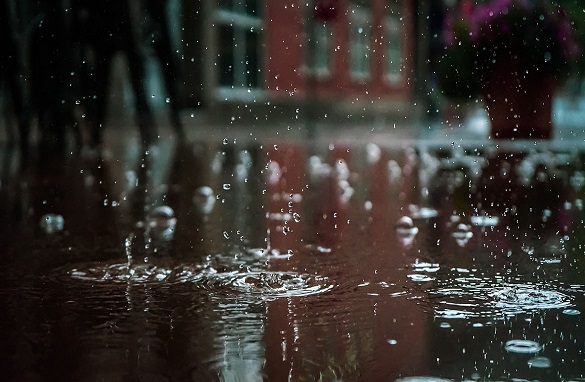
Delhi Rains – When the City got Plunged under Water
The wettest September
It began as a whispering in the air. I looked out of the window. The sky was pitch black, and the large clouds moved towards me. I heard a tapping on the window, quickly turning into angry buzzing bees. Usually, by September, monsoon recedes from Delhi, and rarely do we see dark clouds splattering the capital city mercilessly.
We shivered inside our homes, oblivious to people’s hardships on the street. The rain was incessant and relentless. The downpour lasted three days without a break. Delhi recorded around 380.2 mm of rainin less than three days.

The thermometer plunged gradually, and the Air Quality Index initially turned ‘unhealthy’ from ‘hazardous.’ Then, slowly it inched towards the ‘good’ category, which is rare. The notorious Delhi air pollution was drastically reduced, and we could breathe fresh air after a long haul. The weather turned salubrious, perfect for enjoying hot tea on the balcony, admiring the nature outside.
It teemed down in a biblical deluge that flooded the Yamuna River, drowned the roads, uprooted the trees, stranded cars, caused electricity blackouts, and kept the city on tenterhooks. Several long traffic jams were reported throughout the city, and the traffic policemen faced an ordeal on their duty.
Plastic waste blocks the drains
The worst part was that all our troubles on the street were our fault. All the garbage, plastic bags, electronic waste, candy wrappers, and plastic water bottles were swept away, and the drains were clogged. Delhi never receives such mammoth rainfall, so the gutters were not properly desilted prior to the arrival of the monsoon. This exacerbated the situation and resulted in severe waterlogging. Scores of cars and bikes broke down on the streets and had to be towed away. The roads, already potholed, were brimming with water and caused a few accidents. Overall, the city was in chaos after one long spell of rain.

The solution
Urban flooding is mostly avoidable with water accumulating on roads after a heavy downpour due to unmaintained drains, plastic bags, shrinking open spaces, and climate change.
Let us concentrate on what we, the ordinary citizens, can do to lessen the impact when the city is flooded rather than what the civic authorities could have done. First, we can all segregate plastic waste from organic kitchen waste at the local level for better recycling instead of carelessly scattering the trash on roads. Additionally, this will make door-to-door collection by civic authorities more effective.
In addition, actions like rainwater collection, banning plastic bags, and making better use of weather forecasts will go a long way toward reducing flooding in urban areas after rain. Long-term thinking is required in urban planning, and infrastructure development must keep pace with population growth. If drains are not cleaned properly, there is also a need to improve the accountability of governmental and municipal authorities. People should face penalties if they throw trash on the streets. As an environmentally conscious organization, Evirocor can help raise awareness against the open dumping of plastic products. Additionally, they can encourage citizens to use more green food packaging products instead of plastics. Evirocor has emerged as a market leader in promoting initiatives toward sustainable food packaging solutions. Oko products are produced using its patented Cortec-Revolution technology without the use of heat. This significantly reduces carbon footprint and produces Oko brand products from earth-friendly, plant-based, home-compostable materials.
